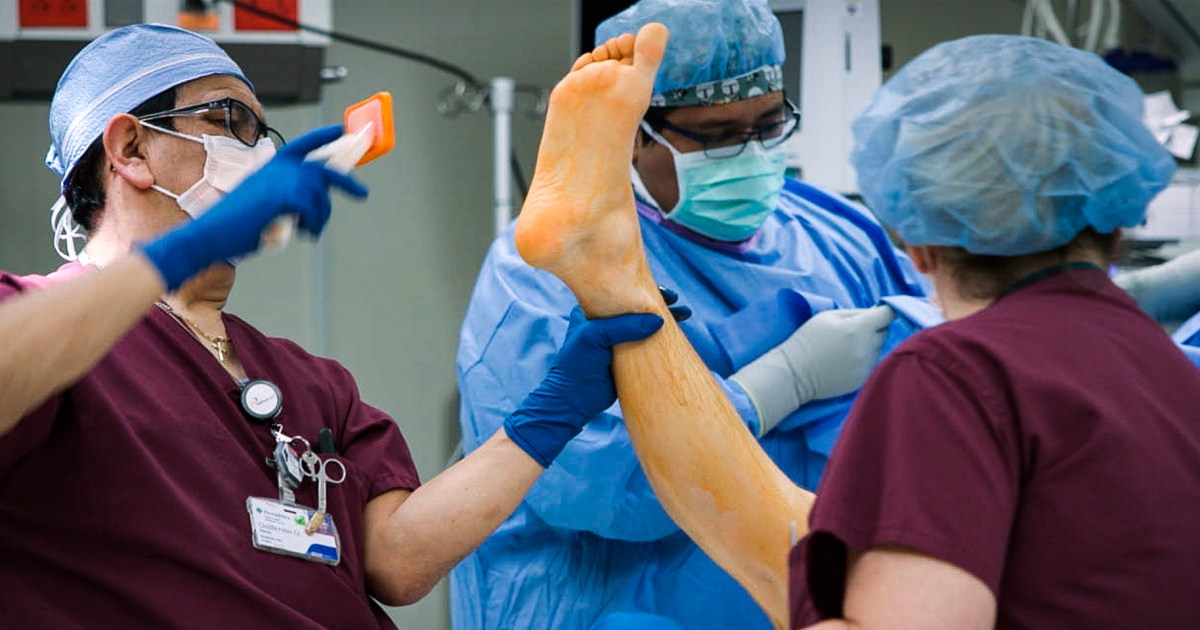ON A WARM OCTOBER evening in Green Bay, Wisconsin, Aaron Rodgers—the Packers quarterback these past 18 years, a four-time NFL MVP, and, lately, the subject of some odd and intriguing news stories—is clambering up the stairs at a place called Three Three Five, a dimly lit, semiprivate bar and supper club with a 10,000-bottle wine and whiskey cellar, craft cocktails, and farm-to-table fare popular with Packers players. It’s really nice—the upper-Midwest version of a cool, exclusive speakeasy. Upstairs is a library, a salon for billiards and darts, and private rooms suitable for both small social gatherings and the thing that has brought Rodgers here on a Monday, just 24 hours after a beatdown by the New York Jets at Lambeau Field: interviews.
He’s just finished two hours of interviews and photo shoots downstairs, a mini junket for Zenith, the Swiss watch company for which he is a brand ambassador and the face of its Chronomaster Sport model. Now he’s here for one last one-on-one before heading home to sleep—sleep is so important.
Rodgers limps a little. It’s been a so-so season for the Packers, and yesterday’s 27–10 loss was their second in a row (and would turn out to be the second of five straight). His right hand—at the end of his golden right arm, which landed him the $151 million contract he signed in March that runs until 2025, when he’ll be 41—looks bruised and swollen.
Last night he did his usual postgame recovery routine: a glass of Scotch and a rest on his BioMat, a heated pad filled with amethyst crystals that is an FDA-approved anti-inflammatory aid. Then, this morning, a Graston rubdown—a deep, soft-tissue treatment using a metal edge that’s like foam rolling to the power of ten—and a sauna. He used to have a hyperbaric chamber at home so he could breathe in elevated levels of oxygen to help speed healing; however, he lost that in a split with an ex. (He thought it had been a gift, but apparently not.) He’s adjusted his diet in recent years, eliminating dairy and gluten and emphasizing organic, non-GMO meat and produce, which he says is not the easiest stuff to find in Green Bay. “I always approach every situation from an information-garnering standpoint,” he says. “I’m not an expert. And when somebody has a greater expertise in something, it’s always best to listen. We have two ears and one mouth for a reason.”
The Lumineers tinker on the sound system, and there are strategic candles that smell invigorating and a little mysterious (amberwood, pine, and fig). Rodgers is dressed like a Jedi: a hooded sage cloak by the Los Angeles brand Spiritual Narcissist, a necklace with a crystal-and-fossil amulet, black sweatpants, and Adidas sneakers. He’s burly, a thick six-foot-two, 225 pounds, with penetrating blue eyes and a firm handshake despite the wear on his thumb. The tattoo that covers his left forearm is his first, and he went all in: a mystical tableau of star signs, the third eye, lions, and the sun and ocean. He’s been talking all afternoon, explaining concepts like divine synchronicity and the nuance of being a Sagittarius with Taurus rising as well as quoting The Office, the spiritual guru Ram Dass, and Forgetting Sarah Marshall.
Rodgers settles into a studio-apartment space upstairs with exposed brick walls, cattle skins on the wood floor, leather lounge chairs, and a sturdy sofa. He smiles and makes friendly eye contact, but he’s also what you might call force-sensitive: yogi posture, careful intonation when speaking, and an athlete’s awareness of the space around him. The way he sits down and moves—it’s all very deliberate.
His friend and marketing agent Ed Berry and a publicist are sitting in to make sure we stay on track. This is because of those odd and intriguing news stories, which trickle out every now and then, such as the revelation by Rodgers’s brother Jordan in 2016 that the famous QB was estranged from his immediate family; the question of why it didn’t work out with his A-list exes, including Olivia Munn, Danica Patrick, and Shailene Woodley; and his curious declaration in 2021 that while he had not been vaccinated against Covid-19, “I’ve been immunized.” As successful, likable, and inscrutable as Aaron Rodgers is, some people are asking if he’s gone off the rails a bit these past few years—and we haven’t even gotten to his new hobby, ayahuasca, a psychoactive tea containing the hallucinogenic drug DMT.
Until recently, Rodgers had always appeared to live his life and play football according to a personal code of conduct. He was careful. He was deliberate. A laser thrower on the field from seemingly any angle. A fun guy off the field—but one you never really got close to.
Consistent.
Now he’s talking about crystals and unconditional self-love and drinking trippy tea. In terms of performance—and life-enhancing hacks—it’s a long way from Tom Brady’s avocado ice cream.
We almost hate to ask it, right? But he’s kind of giving us no choice. Has one of the best quarterbacks ever to play the game lost his way in the world?
“MY MIND IS a weapon now,” Rodgers says about his strengths on the gridiron. “I don’t run as well as I used to, or as frequently.” Rodgers had years when he was near the top of the rankings for quarterback rushing yards, he says. “And I can still move around, get outta some things. But I definitely win the game more now with my mind.” (Before, when he was asked about how he recovers after a game, he laughed and asked, “Physically or mentally?”)
Not that he’s letting anything slip physically. That would not be his way. He does barbell squats and recently lifted 425 pounds for reps, surprising some of the younger players in the Packers gym. Rodgers injured his knee in 2018 and mostly rehabbed using dumbbells and kettlebells. “I started squatting again in 2019,” he says. “Actually getting under a bar and squatting was really, really important for me to get my legs back and my balance back, get my strength back and my flexibility back. That’s probably been the most important exercise that I’ve added back to my routine.”
He talks slowly, not because he’s tired, which he most certainly is, but because he chooses his words with care. As he sits and sips water, he speaks not in sound bites but in paragraphs whose ideas and sentences are interconnected, and it is partly for this reason that he has a long history of recording his interviews so his quotes are not taken out of context.
Rodgers definitely chose his words with care when he gave the three-word sound bite that came to define him during the pandemic, spoken in a press conference on August 26, 2021: “I’ve been immunized.”
About that. He’s talked about it, quite a lot, actually, and feels he and the statement itself have been mischaracterized. It’s not like he was drinking bleach. He’s said he was referring to a homeopathic protocol—not that any of the reporters present asked, or he would have explained. It’s part of his whole approach, he would have told them: Chinese herbs, acupuncture, and other elements of the Eastern philosophy of health and wellness, which for thousands of years has been used to treat the whole body and mind—as opposed to the hyper-targeted, symptom-driven approach of Western medicine.
He’s said he didn’t put anyone in danger, because he was tested daily by the Packers before seeing people. When he did test positive for Covid on November 3 of that year, Rodgers recovered in 36 hours and spent ten days in isolation, per the NFL protocol. Yet he was labeled everything from a Covid denier to a flat-earther. Saturday Night Live made him into a skit, and NFL commentator Terry Bradshaw called him a liar. There have been plentiful Twitter jokes about how he seems to be immunized against winning games.
“There’s definitely a need for more people to be empathetic,” he says in what turns out to be the topic sentence of one of his spoken paragraphs. “With all the amazing things that social media has done for us . . . it’s also given a platform to everybody’s opinion. And as great as that is as a basic First Amendment right, it’s also given way to a big portion of entitlement. With that entitlement comes the inability sometimes to have conversations with people you disagree with. Empathy is going into the experience of someone else and trying to understand why they think or feel or react to things a certain way. There’s beauty in disagreeing with someone and still respecting them and not trying to take away their dignity or their right to have an opinion. I think we need to, as a society, be mindful of that, because our difference is what makes this country so incredible. Just because you have an opinion doesn’t mean it’s the right opinion. And I say that and check myself all the time on it. Just because I believe something wholeheartedly doesn’t mean that there aren’t other sides to conversations and opinions that can influence me and educate me more and at a bare minimum help me to have empathy and connection with people who don’t have the same experiences that I had.” It’s a lot to digest, but the message of seeking to better understand others, and to be better understood ourselves, resonates.
RODGERS HAS found an ally on this journey: Aubrey Marcus, the podcaster, founder of the fitness and supplement brand Onnit, and creator of a holistic health philosophy he calls Total Human Optimization. The two men have become close, and this past summer they went to Greece together. Not to the island of Mykonos, like other celebrities, but to Epidaurus, which is considered an important therapeutic center of the ancient world and is said to be the place where the concept of healing began in Europe in 2 B.C.
Rodgers comes alive when talking about the legends and stories he learned on the trip. “People would come from all over the place in different civilizations and cultures and come there for healing. The way they did things was ahead of their time. They dealt a lot with the mental health of the person first,” he says. “They used darkness therapy. They completely changed the person’s diet, got them on a good sleep schedule. They took them through a placebo effect”—healers used nonvenomous snakes, dreams, and divine intervention to promote healing—“and then they left room for the miraculous as well, which I believe exists in life. Miraculous things happened there, and every time a miraculous event happened, they marked it in a special building. It was fun to go and see all the miracles listed on the wall.” Rodgers takes this kind of stuff seriously, because he’s curious and he wants to optimize his mind-body health—especially his mind.
“As football players, we all have a way higher risk of CTE, and it’s a real thing, and it’s something we should be worried about,” he says. “I definitely have had concussions and worry about my future cognitive abilities.” He says he does “silly things” to trick his brain, like brushing his teeth with his nondominant hand. For the longer term, he’s following emerging neurological research into how sessions in hyperbaric chambers may help with gray-matter healing.
Rodgers and Marcus also undertook a different kind of trip in 2022: a three-night ayahuasca ceremony in an undisclosed location with a master shaman. An ayahuasca ceremony could be the subject of another article entirely, but in brief, you drink the hallucinogenic tea under the guidance of a shaman, typically for two or three nights, then (the hope is) you spend the next several hours gaining a deeper connection to, and a deeper understanding of, the self.
Rodgers says his intent was to focus on a deeper sense of unconditional love for himself, as well as self-forgiveness. The second night, he says, was tormenting. He thought about all the negative things people had said about him and the self-doubt he’d wrestled with. For hours and hours, it went on like this. Eventually, he says, his ego dissolved and he found peace with the idea that he could be that person and still love himself, and others could love him, too.
“There’s a lot of trust,” he says of the process, in which you consume a hallucinogenic tea as a path to enlightenment. “And surrender, I think, is another good word. You have to surrender to the master plant teacher that is ayahuasca, and there’s naturally some fear around that. And when you do, some pretty incredible things can happen, as was evidenced by night two of my most recent journey. Night one I was still a little resistant, and night two, I fully surrendered to the process and to the master teacher, and she was benevolent in her lessons. There’s a lot of overall happiness that exists when you have a deeper love for yourself. It actually allows you, I feel, to give and receive love better and interact with people with less judgment and less projection. So that’s one thing I’ve really been working on.” He’s noncommittal on whether he will do ayahuasca again, saying, “If I feel called to sit with that plant medicine or another plant medicine, I will. But at this at this particular moment, I don’t feel called.” Something with a mental benefit that he is called to daily is doing the dishes. Rodgers likes washing dishes. Very much.
“It’s one of my favorite activities in the world,” he says. “I think meditation can get skewed at times, like you have to go in some sort of trance and start om-ing or whatever, but I feel like I can go into a meditative space doing the dishes. I can also get it with an instrumental soundtrack going on, just sitting on my couch in the sunroom, without my phone on, just my eyes closed. Then I can also go into it, you know, practicing some Transcendental Meditation. It’s really just about how I can calm my mind so it’s not racing. It’s natural to have 50,000-plus different thoughts that go through your mind on a daily basis, but how can you learn to quiet that a little bit and settle into the calm and ease of the day, so you’re just a little less stressed, a little more present, and a little more available to your teammates?”
Holistic is the adjective form of holism, which the dictionary reminds us is a study or method of treatment that’s concerned with wholes and complete systems, more than the mere sum of elementary particles. The whole body. The whole mind. The whole self.
Much was made of Rodgers’s forearm tattoo when he got it, on social media and by the jabbering mouths of talking heads. People called it bizarre, and Fox football analyst Skip Bayless said it was a “middle-aged-crazy tattoo.” To Rodgers, it was deeply meaningful, a four-and-a-half-hour process in which one of the world’s tattoo masters created a spectacular, intricate design. Present in it are his two godsons, “two amazing boys,” in the form of the constellations of their astrological signs. There are calm and roaring lions. “And this is the eagle that holds the balance of fire and air. And in this case, the eagle represents air,” he says, tracing the elegant black lines with his finger. “This is water, and the big circle is earth. So you have the four elements.” The whole universe itself. “And there’s some other deeper meanings, but”—he smiles—“I want to leave those to the imagination.”
Aaron’s tattoo:
His mind is a weapon now, and he simply means to take care of it the same way he takes care of his body. He uses ayahuasca to open it up. He uses Transcendental Meditation to slow it down. He has a Scotch after a game because games are crazy and he needs peace and rest. He eats better, because “when I have less inflammation in my body, my joints feel better, my sleep is better. My brain is clear, sharper.” All of this has been an awakening but not really a shift in the way he lives or a change in his code of conduct. It’s a broadening.
And the Covid thing? His immunization? It fits. He’s careful, and he’s deliberate, and there’s some fear built into being careful and deliberate. He’s afraid of the vaccine—that’s basically what he has said. Allergies to certain ingredients, blood clots—all fears that have been debunked by science for the majority of people, but something in his mind and method told him there was a risk. That’s the thing about a code: It doesn’t always lead you to the right place, but it’s consistent.
Aaron Rodgers has not lost his way in the world. Not at all. In fact, it’s just the opposite. He’s found it.
This story appears in the January-February 2023 issue of Men’s Health.
Ben Court is the Executive Editor of Men’s Health. He has a decade of experience writing and editing stories about peak performance, as it relates to health, nutrition, fitness, weight loss, and sex and relationships. He enjoys yoga, cycling, running, swimming, lifting, grilling, and napping.















